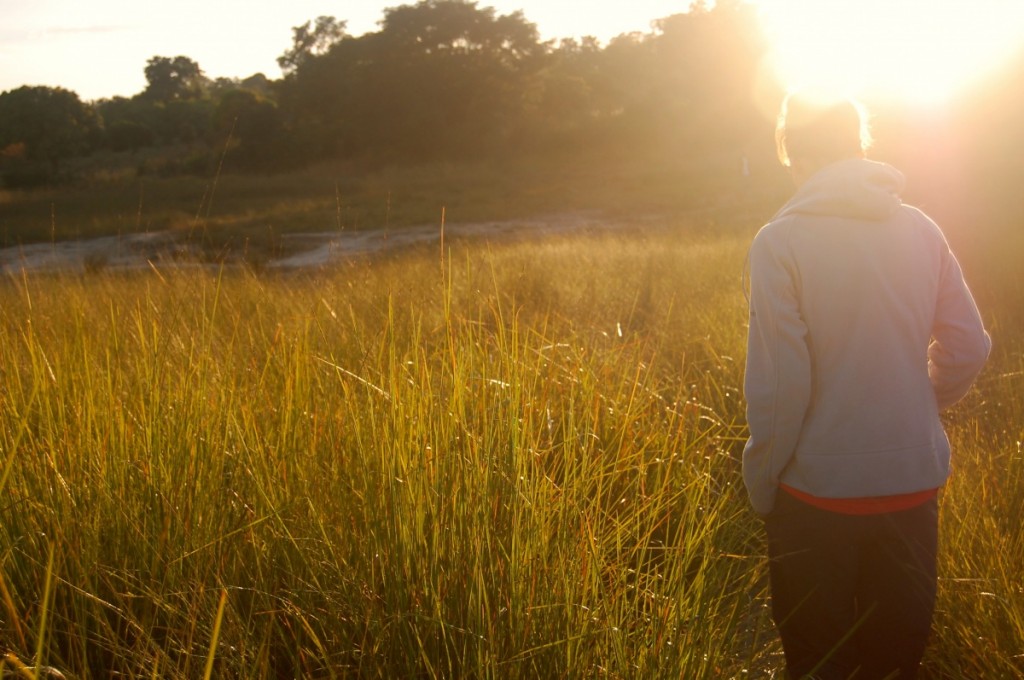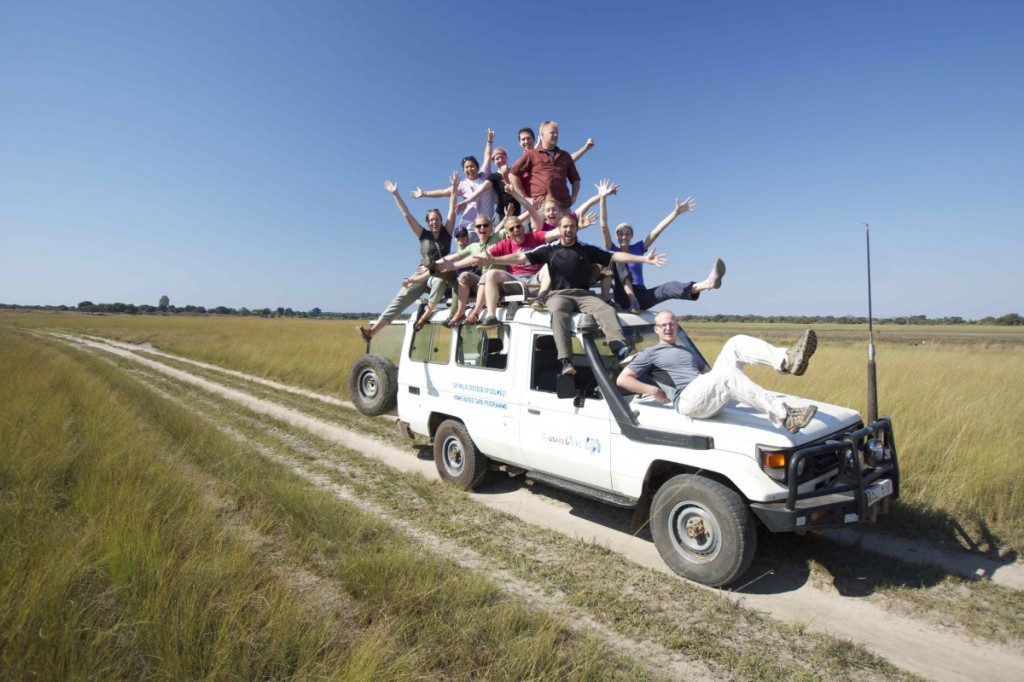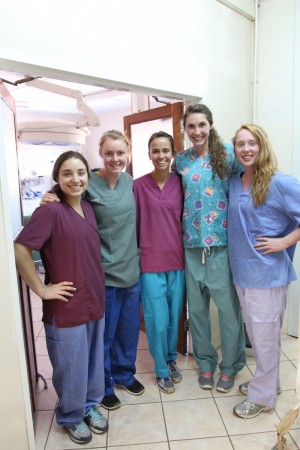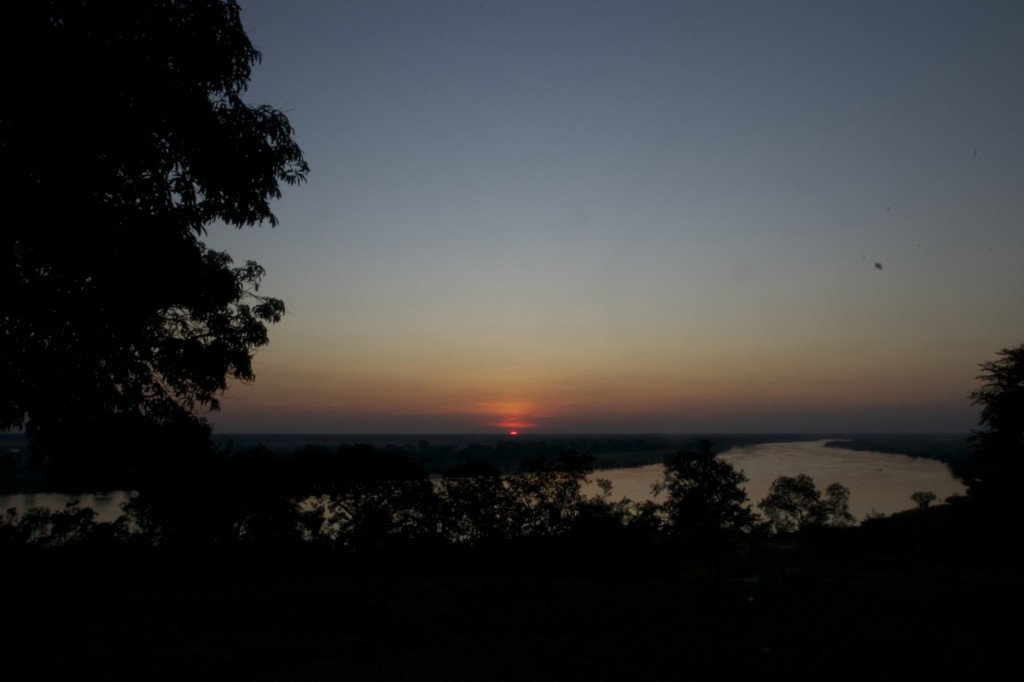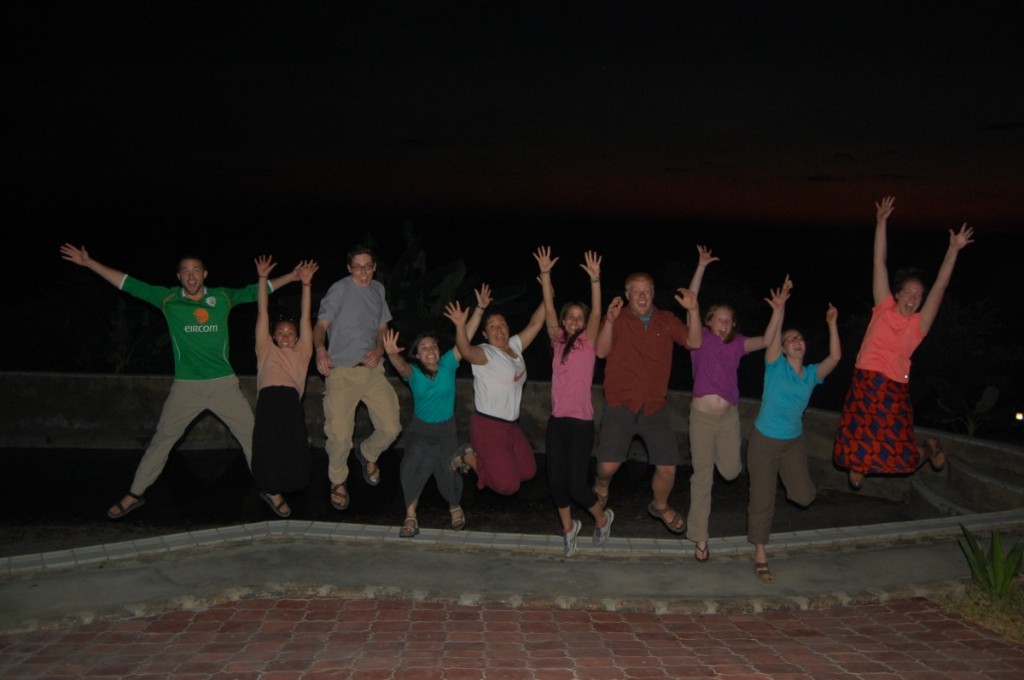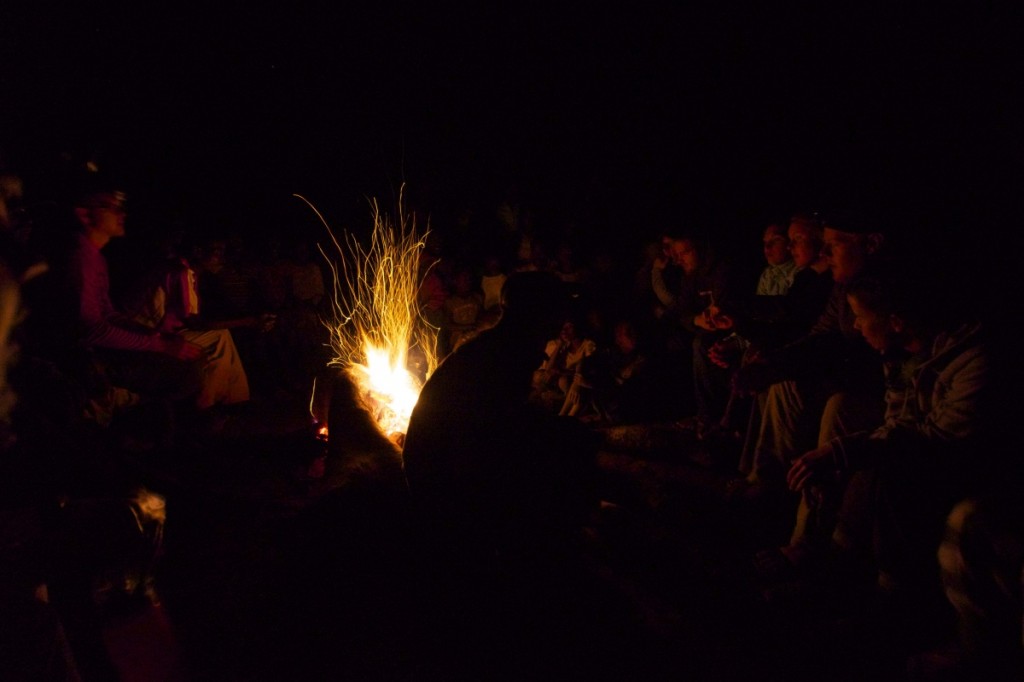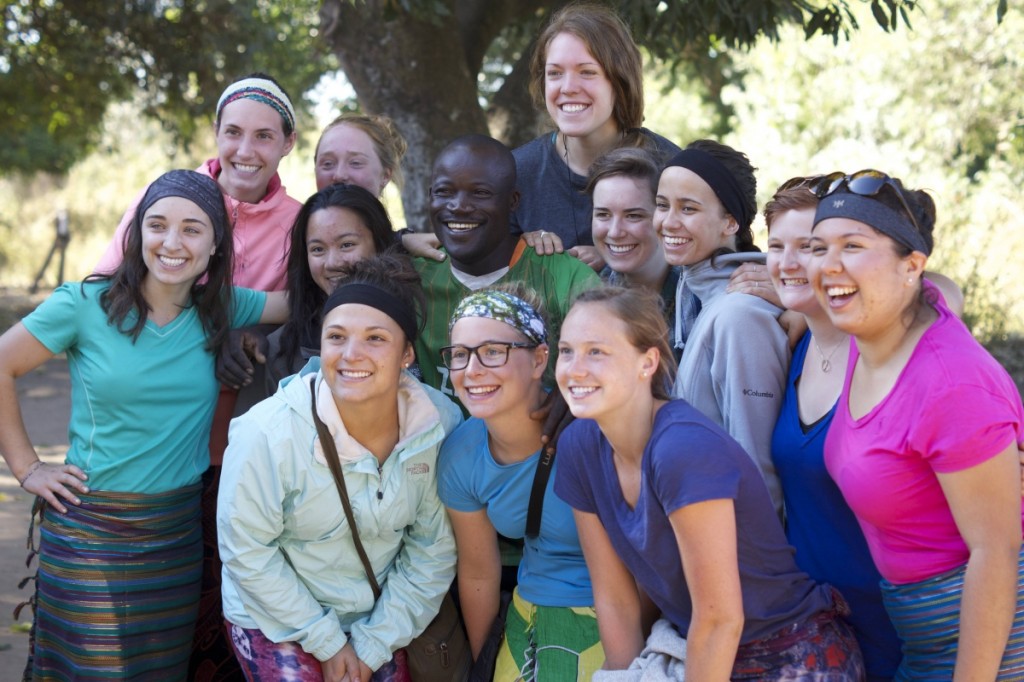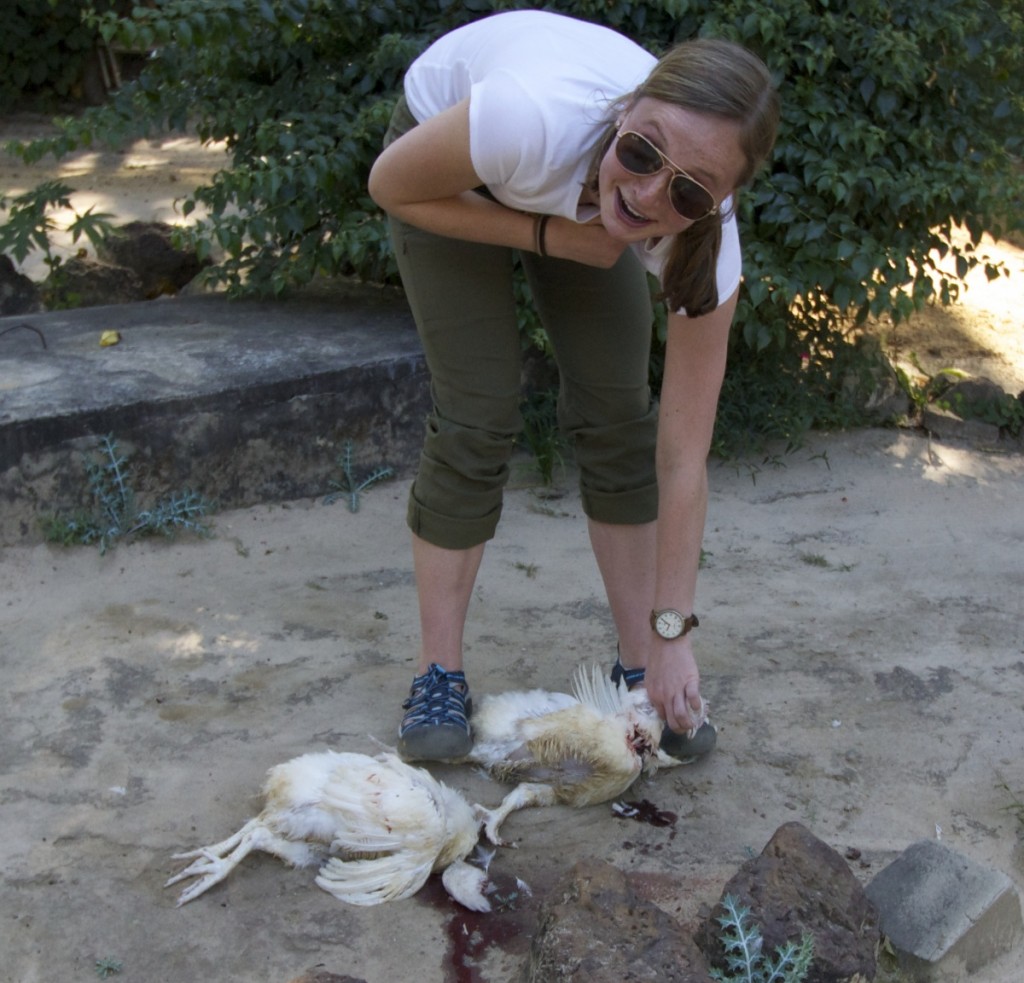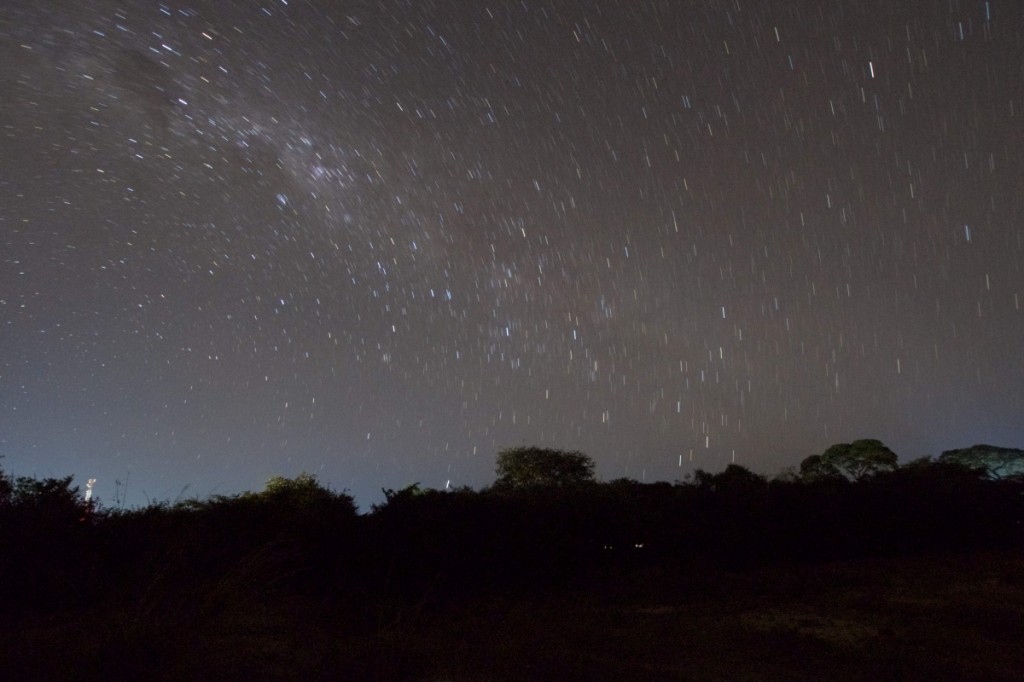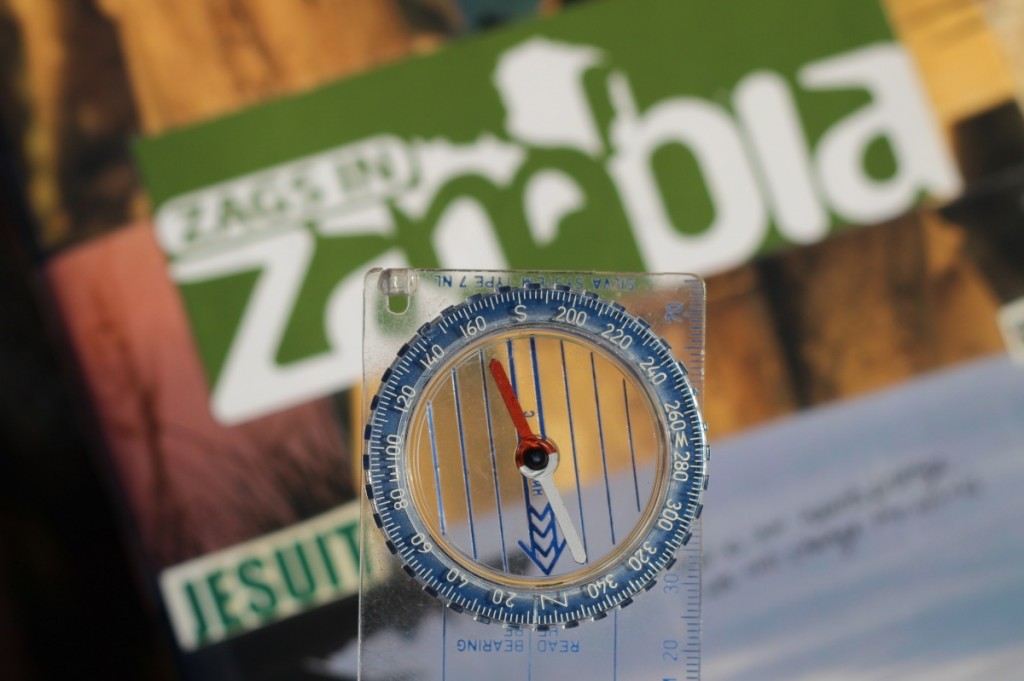If I had a kwacha for every time I started, and then reworked, my thoughts for this blog post, I would have enough for probably two chitenges. I was thinking of basing my ideas on a quote, but that felt too confining. I drew some inspiration from an article we read before reflection a few nights ago about learning how to lean into both your “light” and your “shadow” to lead most authentically and fully. But with how I’m feeling these days, getting the ball rolling doesn’t quite cut it.
There is one thing I know for sure, though, and have been holding onto to help me wade through my swarming thoughts. While we were sitting in mass in Dipalata last Sunday, beaming children and adults surrounded our group of fresh-faced chindeles. Wide-eyes, curiosity, and some amusement from our newness radiated on their faces. We were praised, blessed, and fed more than we could consume while we were in the middle of a village that doesn’t have running water or electricity, let alone enough to properly feed their entire family week to week. What were we doing there? Yes, we taught some classes, and I am proud of the computer lesson Shannon, Mark, and I were able to throw together for a group of eager learners, but I couldn’t fight the feeling that I was showing people the door to all of this wonderful and exciting knowledge and potential (hello power of the Internet, which was quite a trip explaining), but then putting the key to this greatness in my back pocket and peacing out for good. “Here is this tool, it will connect you to the world and give you the ability to access knowledge you cannot even begin to fathom, but shucks!, looks like you can’t have it.” These thoughts were pulsing through my body as I was looking around at these bright faces at mass the day after our lesson.
What the hell were we doing there?
Before my thoughts could take me down the path of “are we doing more harm than good?” I realized that our presence offered something beautiful and powerful. We were being. Simply being. We flew from Seattle, Washington, to Zambezi, Zambia, literally halfway across the world, just to be with people. This was even more evident in Dipalata, where we did not go to teach two-week long courses that ensured students GU certificates. We were literally there for an overnight immersion experience. But more importantly, we were there just to be. Our purpose in Dipalata was to acknowledge people for their full and dignified worth. Simple as that. I then stopped to look at these individuals in the eye, instead of grazing my glance from child to child to adult to child. Before accompaniment comes acknowledgment. Helen said it in an earlier blog: the greatest thing you can give someone is your attention, your time. Acknowledge people for what they are with the entire dignity they deserve. That goes for conversing with children and adults like we would back in the States—no patronizing, no coddling, no special or different treatment. People are people, no matter where they are from.
Africa is being un-romanticized for many of us, which is a wonderful thing. This continent is that exactly: a continent. It is not one country with one culture, and while there is extreme poverty in many places, there is also extreme growth, and not every man and woman is starving living in a mud and straw hut. Sure, there are more cultural differences than I can count, but that goes both ways. This place and country and city is not filled with elephants and lions and people in tribal costumes speaking only in tongues. It’s not all hard and tragic and “third world.” And it isn’t all easy and beautiful and handholding and poetic. It’s life and these are people. Zambia wove itself into the fabric of my being. I will always hold it near and dear, but not put it up on a pedestal, as that would be taking away from the innate dignity that comes from acknowledging a place as exactly what it is: a place. Sure, some of the people here have changed my life for the good, but people from all over the world have done that for me. And the people in Zambia are no more special than any one of you reading this blog.
The moment we lose sight of our global “oneness” is the moment we dehumanize and diminish peoples’ dignity and merit as individuals. Each person is worthy of her own story, and it is our challenge, privilege, and responsibility to join people in accompaniment in the journey of mutual discovery, liberation, and growth. I think it is fair to say that these past three weeks have been riddled with experiences that have both challenged and inspired; I am not without insightful topics or happenings. I have come to accept, though, that I am at a time in my life where the foundation of who I am is being rattled. My above idea is the one sense of clarity I have had the entire time. My sense of self and worth; my faith; my relationships and connectiveness and place in the world; what the hell I want to do with my future; my gifts, talents, and purpose; and the mere foundation of who I am is unsettled and being called into question. I have had pretty drastic shifts in discerning who I am, what I believe, and who and what is important to me in the past, but this experience is pretty surreal because I am not identifying these shifts retrospectively, but rather in the moment. In the past, I grew most from reflection on particular conversations, events, and moments, all after the fact. Wisdom from experience.
However, this time around, I feel my mind racing at a rate I can barely grasp, and it is almost making me feel numb. Emotion overload—I don’t know what to feel or how to articulate anything that has been crossing my mind after all of these wonderful and interesting encounters and experiences. A part of me also feels desensitized to the culture shock, and I am not fazed by some things until I realize my fellow fam members are inspired or disturbed. Part of that, I believe, is because I have a unique perspective on this trip. I am coming from a year of studying and traveling in Europe, so culture shock has lost a bit of its novelty for me. People are people, and a place is a place, regardless of where you are in this world. Zambezi felt really comfortable only after couple of hours, and I think that led me not to be as obviously and blatantly challenged as some of my peers. I have never had an “ah ha!” moment, and while now I am seeing that that is okay because each experience is our own, it initially caused me to wonder if I was missing the point or was not challenging myself enough to dig deeper. This mentality prompted the uncertainty on all else, which brings me to this blog post and how I just don’t know. I have faith that this experience will lead to great growth, but it is definitely daunting to still be in it and not have much to hold on to. Who I am is on unstable territory. And I realize that is okay, and probably the point I seem to be desperately searching for. I don’t need, or want, even, clarity or peace now. And I have come to embrace and accept my uncertainty, more or less. But as someone who draws strength, faith, and peace from grounded ideas and values, I am feeling lost.
This all goes back to the article I mentioned about owning both our “light” and our “shadow.” I think my shadow, at least at this point of my life, has to do with my uncertainty about almost everything I am facing, which has brought up different insecurities from my past. I am very much a person of faith, but not much for organized religion. At the same time, because I don’t have the structure that institutional religion can offer, I often struggle when my faith faces challenge. I know I see God through and in my relationships and the conversations I have with people, and God is very much the fibers that connect us as human beings. But what, exactly, is God to me? I have a trust in something greater than us, and put my faith in the unknown and believe that what is meant to be will find its way. I guess I can call that God? But that doesn’t sit right with me. I feel a disconnect between how I see God and what God is to me, and having this existential crisis, alongside many other questions about my purpose (etc.) in this setting is quite a trip.
Other than all of that utter and complete distress, life in the Our Lady of Fatima Convent is great! We cleared well over 60 of Conner’s no-bake chocolate-peanut butter cookies today, so all is well and yummy on our front.
That’s all for now. Kisu mwane, my friends!
Be free, Cecilia Vollert Class of 2015
P.S. Sending a silly amount of love to you Mom, Dad, Andrew, Brian, the rest of the Vollert and Tierney clan, and all of my wonderful friends back home. I am coming for ya!

